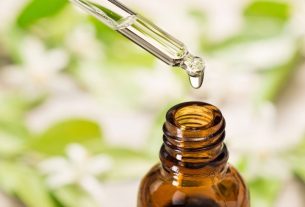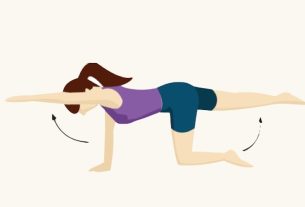Some hemorrhoid medicines, such as diosmin and hesperidin, horse chestnut, ibuprofen or fluocortolone + lidocaine, can help relieve internal or external hemorrhoid symptoms, such as pain, burning, itching or bleeding.
These remedies have anti-inflammatory, analgesic or calming effects and should be used with advice from a proctologist or general practitioner who can indicate the best treatment individually and according to the type of hemorrhoid.
During hemorrhoid treatment it is important to keep the body hydrated, drinking plenty of water and eating a diet rich in fiber. Furthermore, some home remedies, such as sitz baths, can help alleviate symptoms and speed up recovery, complementing the treatment recommended by your doctor.

8 remedies for hemorrhoids
The main remedies for hemorrhoids are:
1. Diosmina e hesperidina
Diosmin and hesperidin is a pill for hemorrhoids that acts on the hemorrhoid veins, reducing their dilation and increasing the tone of the blood vessel.
In this way, these pills help reduce inflammation and relieve hemorrhoid symptoms such as pain, swelling, burning sensations or even bleeding.
Some examples of hemorrhoid pills with diosmin and hesperidin are Diosmin, Daflon 500, Venaflon, Velunid, Flavenos, Flavonid or Perivasc, for example.
How to use: the form of use depends on the dose of the components in the tablets, and in the case of diosmin and hesperidin, for example, the recommended dose for hemorrhoids is 2 tablets containing 450 mg of diosmin and 50 mg of hesperidin per day, one in the morning and another at night, or as advised by the proctologist. See other ways to use diosmin and hesperidin.
2. Ibuprofen
Ibuprofen is a non-steroidal anti-inflammatory that may be recommended by a proctologist to help reduce inflammation and pain caused by hemorrhoids.
This medicine can be found in the form of tablets or drops, as the generic “ibuprofen” or with the trade names Ibuflex, Alivium or Buprovil, for example.
Ibuprofen may also be indicated after hemorrhoid surgery to relieve pain and discomfort.
How to use: The dose varies with the amount of ibuprofen present in the tablet, and in the case of the 400 mg tablet, the normally recommended dose for adults is 1 400 mg tablet, every 6 to 8 hours, according to the proctologist’s recommendation. See also how to take ibuprofen drops.
3. Paracetamol
Paracetamol, as well as ibuprofen, can also be indicated for hemorrhoids, as it has analgesic action, promoting pain relief.
This medicine can be found in the form of 500 mg or 750 mg tablets and must be used according to the proctologist’s guidance, as prolonged use or in higher doses can cause liver damage and drug-induced hepatitis, which can be life-threatening. at risk. Know how to identify the symptoms of medical hepatitis.
How to use: The normally recommended dose of 500 mg paracetamol for adults is 1 to 2 tablets, 3 to 4 times a day. The maximum daily dose should not exceed 4000 mg, which corresponds to a maximum of 8 tablets of 500 mg per day. Find out how to take paracetamol correctly.
Read too: 7 ways to relieve hemorrhoid pain
4. Docusate
Docusate is a medicine for hemorrhoids in tablet form that has a laxative action, promoting the softening of feces, which reduces effort and excessive pressure when evacuating, preventing the external hemorrhoid from worsening or causing more pain.
This remedy is found in association with bisacodyl, under the trade name Humectol D, and should only be used under the advice of a proctologist.
How to use: the recommended dose for adults is 1 to 2 tablets orally, at night, before bed. The treatment time must be guided by the proctologist.
Read too: Diet for hemorrhoids: what to eat and what to avoid
5. Horse chestnut
Horse chestnut is a pill for hemorrhoids that contains dry extract of the seeds of the medicinal plant Aesculus hippocastanus with anti-inflammatory action that help reduce hemorrhoid inflammation.
Furthermore, horse chestnut helps to reduce the dilation of the hemorrhoidal vein, reducing swelling and relieving symptoms.
Horse chestnut should be used under the guidance of a proctologist, and is contraindicated in pregnancy and for children or people using anticoagulants.
How to use: The recommended dose for adults is 1 tablet of 100 mg of horse chestnut, orally, 3 times a day, respecting an interval of 8 hours between doses. See other ways to use horse chestnuts.
6. Fluocortolone + lidocaine
Fluocortolone + lidocaine is an ointment for external or internal hemorrhoids that can be recommended by the proctologist to relieve pain and inflammation, as it contains a corticosteroid and an analgesic in its composition.
This ointment can be found under the commercial name Ultraproct cream, containing 1 mg/g of fluocortolone pivalate and 20 mg/g of lidocaine hydrochloride and must be used rectally.
How to use: the ointment should be applied after evacuation and hygiene of the anus. To apply to external hemorrhoids, place a little of the ointment on your finger and apply directly to the hemorrhoid, massaging gently. For internal hemorrhoids, you must use the applicator provided in the package and gently insert it into the anus.
The recommended dose for adults is 2 applications per day, morning and evening. This dose can be reduced by the doctor to 1 application per day, depending on the improvement of symptoms. Treatment is generally carried out for up to 2 weeks, as advised by the proctologist.
7. Weed, adrenaline and witch hazel
Animal weed + adrenaline + benzocaine + witch hazel is another hemorrhoid ointment that may be recommended by the proctologist to relieve inflammation and pain from internal or external hemorrhoids.
This ointment is called Imescard Ointment and should not be used by children or during pregnancy.
How to use: Apply the ointment to the external hemorrhoid twice a day, morning and night, after evacuating and cleaning the anal region. For internal hemorrhoids, you must use the applicator provided in the package, gently inserting it into the anus to release the ointment. This applicator must be used with water and neutral soap after each use. See other ointments for hemorrhoids and how to use them.
8. Polycresulene + cinchocaine
Polycresulene + cinchocaine is a suppository for internal hemorrhoids that works by stimulating healing and reducing pain and swelling, especially inflamed or bleeding hemorrhoids, as it has analgesic, antiseptic and astringent effects.
This suppository can be found under the trade name Proctyl and should be used under the advice of a proctologist, being contraindicated for people with allergies to soy or peanuts, children, pregnant or lactating women.
How to use: introduce the suppository deep into the anus, 2 to 3 times a day, as instructed by the proctologist. It is recommended to evacuate and clean the anal area before applying the suppository.
Read too: 4 sitz baths to treat hemorrhoids
Medicine for hemorrhoids during pregnancy
Medicines for hemorrhoids during pregnancy must be recommended by the obstetrician, and the use of paracetamol may be recommended to alleviate symptoms, as it is considered the medicine that poses the least risk for the baby.
However, it should be taken in the lowest possible dose and for the shortest period of time. Find out how to use paracetamol during pregnancy.
In addition, pregnant women should drink plenty of water and avoid standing for long periods of time, and can also take sitz baths to help alleviate hemorrhoid symptoms.
Read too: 6 home options to treat hemorrhoids during pregnancy
Home remedy options
Some home remedies, such as a sitz bath with horse chestnut or cypress, can help alleviate hemorrhoid symptoms as they have vasodilatory and anti-inflammatory properties, and can be used to complement the treatment recommended by your doctor. See how to prepare home remedies for hemorrhoids.
Home remedies for hemorrhoids do not replace the use of medications prescribed by your doctor, but they can help reduce the pain caused by hemorrhoids and speed up recovery.
See how to prepare some great home remedies in the following video:
How to increase the effectiveness of medicines
In addition to using medications recommended by your doctor to reduce the discomfort caused by hemorrhoids, you must:
- Eat a diet rich in fibersuch as fruit and seeds, for example;
- Drink at least 2 liters of water per dayas this makes the stool softer;
- Don’t use too much force when defecating and defecate whenever the urge arises;
- Use pads for hemorrhoids when sitting, which are shaped like a hoop to relieve pain;
- Take sitz baths for 15 to 20 minutes, about twice a day to reduce pain;
- Avoid using toilet paperwashing the area with soap and water whenever possible.
In some cases, it may also be necessary to have surgery to remove the hemorrhoid, which is only done when other treatments have not been effective in controlling pain, discomfort and bleeding, especially when having a bowel movement, even after treatment with medication. Discover the main types of surgery for hemorrhoids.

Sign up for our newsletter and stay up to date with exclusive news
that can transform your routine!
Warning: Undefined array key "title" in /home/storelat/public_html/wp-content/plugins/link-whisper-premium/templates/frontend/related-posts.php on line 12
Warning: Undefined array key "title_tag" in /home/storelat/public_html/wp-content/plugins/link-whisper-premium/templates/frontend/related-posts.php on line 13



